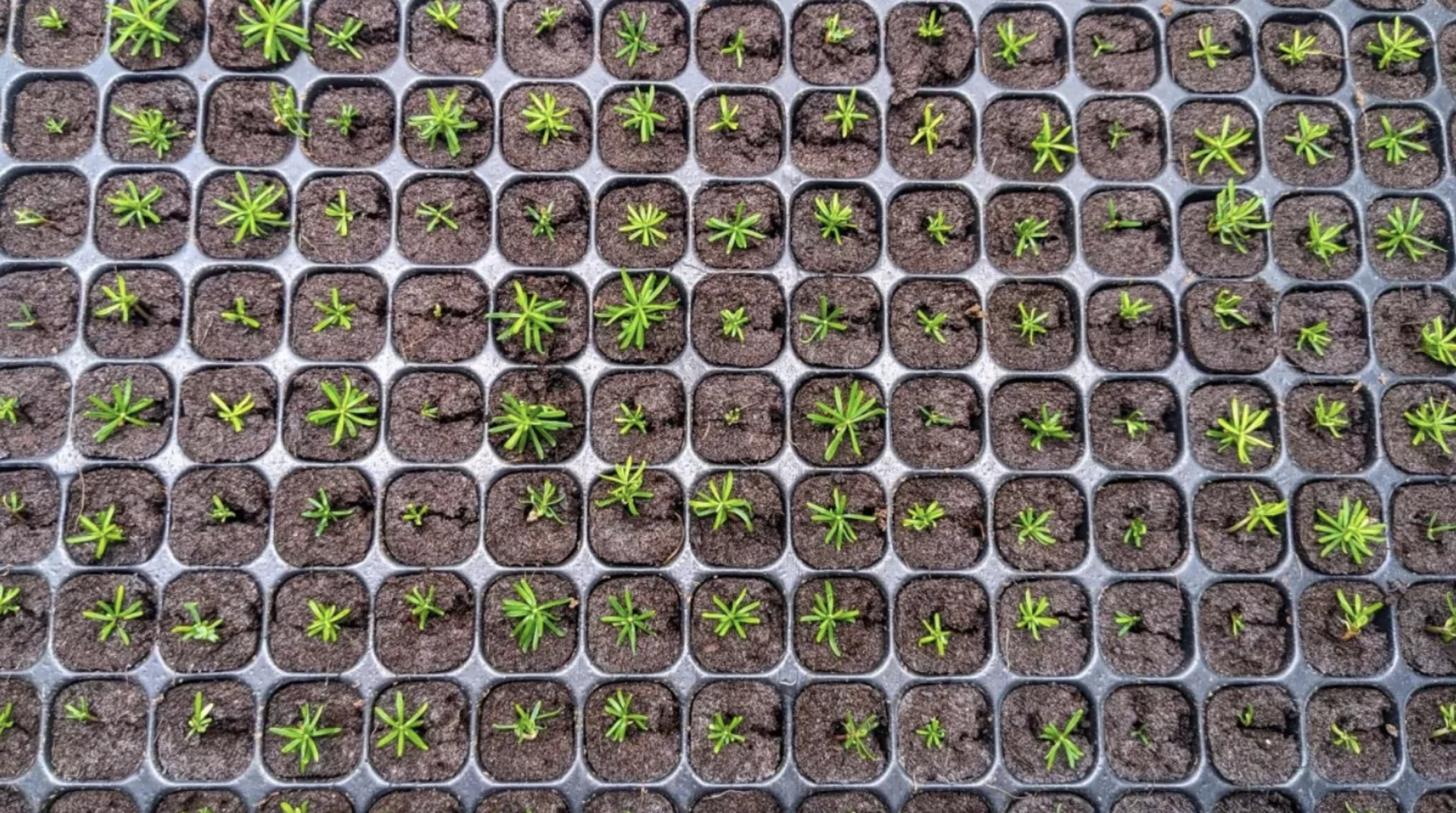
SMART Christmas trees one step closer to local living rooms
It won't be happening in time for this Christmas, but the Christmas Tree Council of Nova Scotia and a P.E.I. biotech company are getting closer to having a SMART Christmas tree standing in a living room near you.
SMART is an acronym for the technology used to create the balsam firs, growing cell cultures into identical seedlings.
The balsams are also "smart" because the needles stay on the tree longer, making them better for shipping across North America, which was one of the motivations for the project that the Christmas Tree Council started more than a decade ago.
RELATED: Your Christmas tree could be making you 'sick'
"It was to build up some technologies that would improve our Christmas tree qualities, the profitability, and be more adapted to climate change, and to increase the quality of the tree that we're producing," said James DeLong.
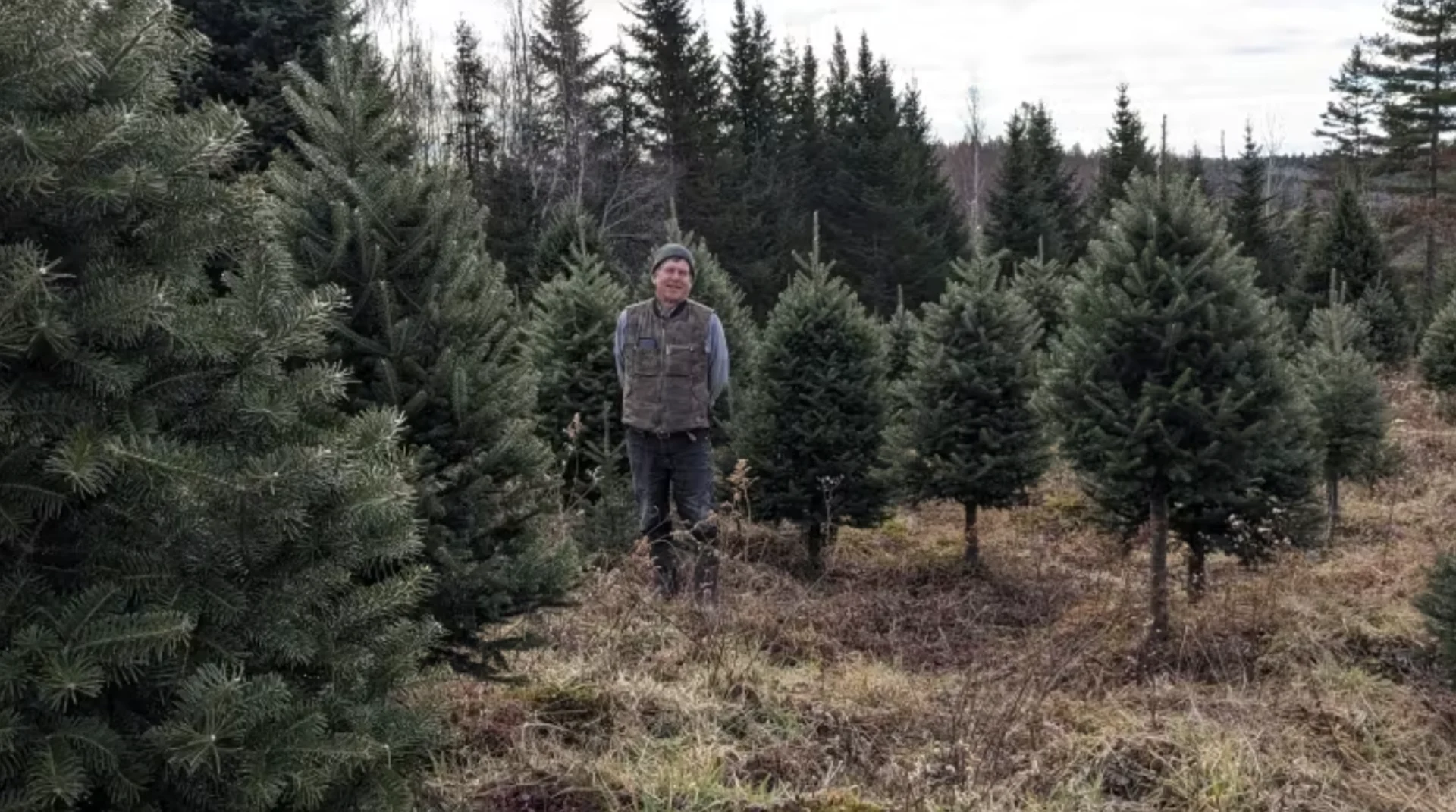
James DeLong is president of the SMART Christmas Tree Research Co-operative and a Christmas tree farmer in New Germany, N.S. (Submitted by James DeLong via CBC)
DeLong is president of the SMART Christmas Tree Research Co-operative and a Christmas tree farmer in New Germany, N.S.
He said the SMART trees will also have other characteristics that consumers are looking for, including a good shape, good branch angles, good colour and balsam aroma.
"Naturally occurring, superior genetics. They're out there. We're just trying to find them."
SEE ALSO: Giving your Christmas tree a second life helps backyard biodiversity
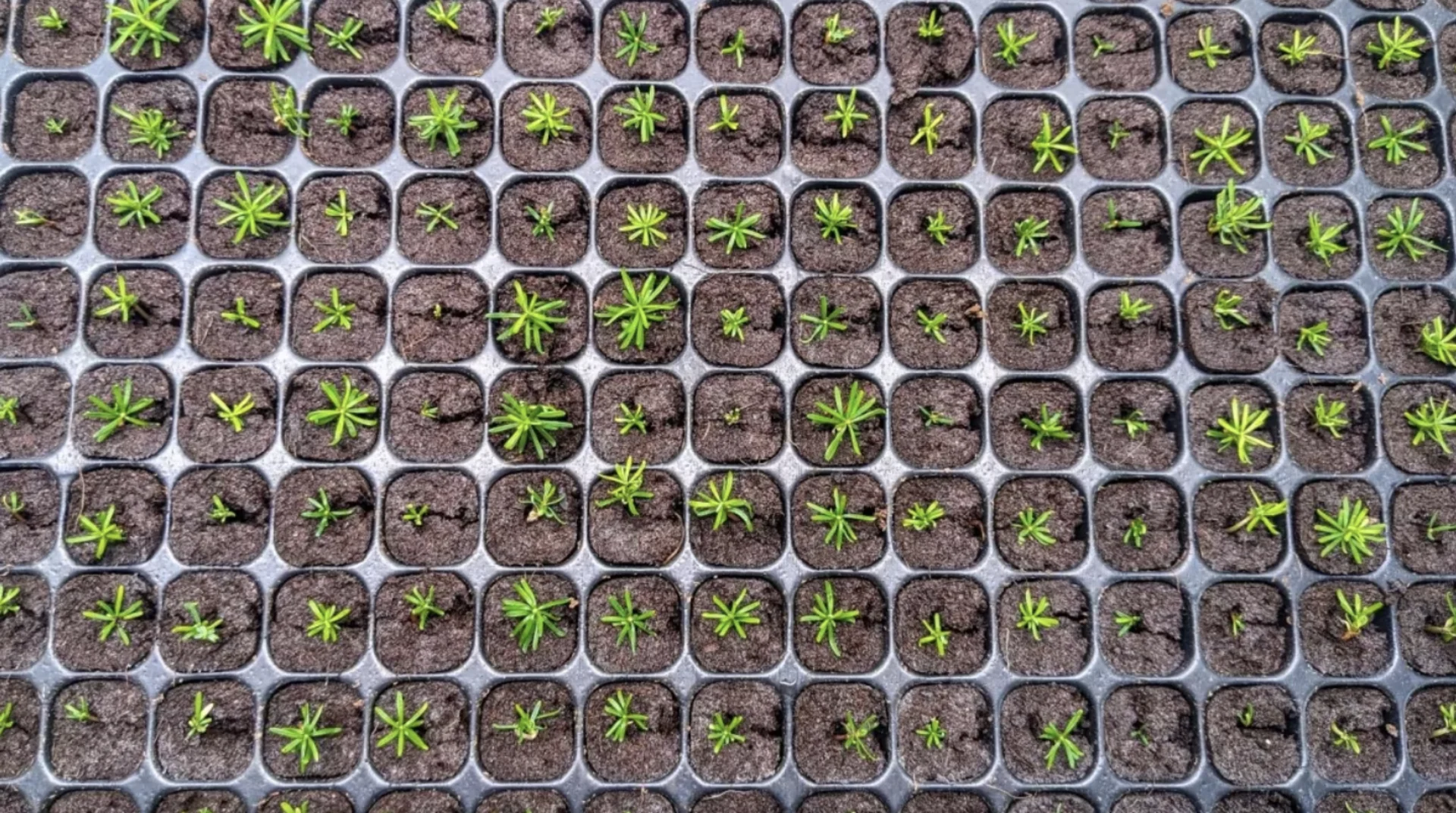
SMART tree shareholders will have first choice to buy the seedlings, and then any overproduction would be available to other growers, which they expect will happen soon. (Shane Hennessey/CBC)
Best performers
DeLong has some of the first SMART trees planted on his farm.
"We're watching them, and testing them, and trying to pick out the best performers," DeLong said.
"Some are doing great, some are doing less than great. Just average. But we're trying to weed out the worst and pick out the best. It's science. There's always a junkyard in the science world, right?"
DeLong has been leading the SMART tree research project since 2013.
"I'm very impatient. We should have those in the ground, we thought eight to 10 years ago, we thought once they were laboratory-ready, they were commercial-ready, but that technology had to be refined," DeLong said.
"So a little impatient, but very optimistic."
DeLong will have to continue to be patient, as he predicts it will be another eight years before the SMART trees are on the market in quantity.
The research, he estimated, has cost about $8 million so far, funded by producers, along with technology grants from the federal and provincial governments.
DeLong said there are SMART tree shareholders, who will have first choice to buy the seedlings, and then any overproduction would be available to other growers, which they expect will happen soon.
DON'T MISS: Real or fake Christmas tree? Here's the environmentally-friendly choice
Long process
In Clyde River, P.E.I., Don Northcott of Phytocultures said his company is gearing up to produce 300,000 seedlings this season. They could spend as many as two growing seasons in a greenhouse before heading outdoors.
"They'll go out to market in 2026, not as a marketable tree, but as a transplant for the Christmas tree producers, and following that, it could be six to eight or 10 years or 12 years even before those trees make it to market," Northcott said.
"To use the old tree adage. What's the best time to plant a tree? Twenty years ago, right. Next time is today," Northcott said.
"In order to have a better quality tree, we have to do this. And there are other endeavours throughout United States and other parts of the world that are moving on this technology now."
DON'T MISS: Canada’s magic number: What exactly makes for a 'white Christmas'?
Northcott said Phytocultures is also working on its own research to develop a balsam fir that will be better suited for the warmer, drier conditions expected because of climate change.
They are using samples from around the world.
"What we've been able to do is work with some exotic species of balsam fir and obtain crosses with them," Northcott said.
"We're extracting the embryos out of those seeds and moving them into this technology process."
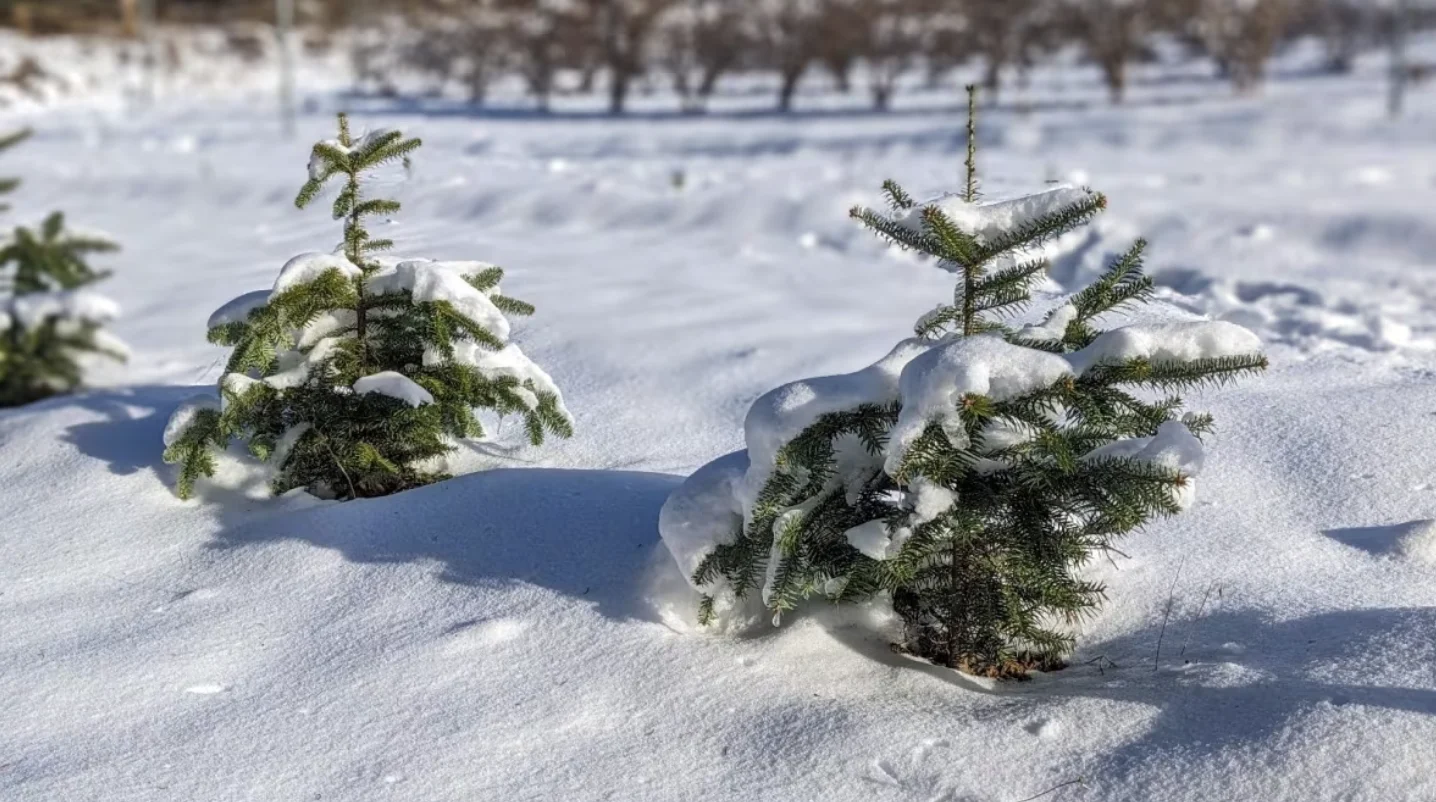
Northcott says Phytocultures is also working on developing a balsam fir that will be better suited for the warmer, drier conditions expected because of climate change. (Shane Hennessey/CBC)
Northcott said the company will be be looking for growers on P.E.I. to work with in the next couple of years.
"Certainly some of the Christmas trees that we're developing on this climate change program, we'd like to identify some local growers that would be interested to take some of this material when it's ready to move and plant it on their property," Northcott said.
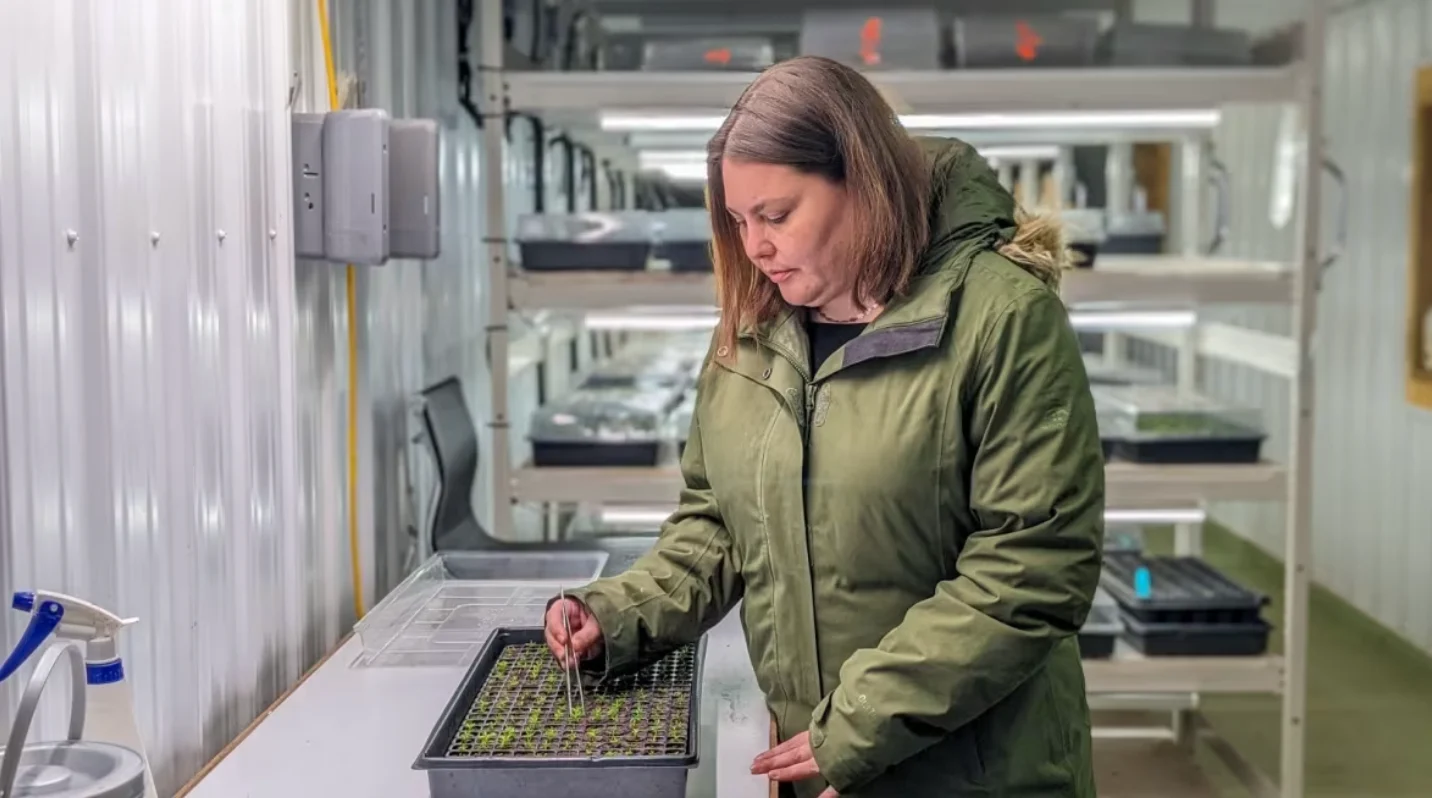
Lead researcher Robyn Kelly in the grow room at Phytocultures in Clyde River, P.E.I. (Shane Hennessey/CBC)
Lead researcher Robyn Kelly said it's exciting to be ramping up to triple production this season, from the 100,000 last year, and to see the first trees starting to grow.
"It's fantastic, especially when we can see that they do exhibit the characteristics that we were looking for, there's nothing better," Kelly said.
"It has great potential moving forward, not only for growers but consumers as well."
WATCH | Did you know there's an actual definition of a 'white Christmas'?
This article, written by Nancy Russell, was originally published for CBC News.